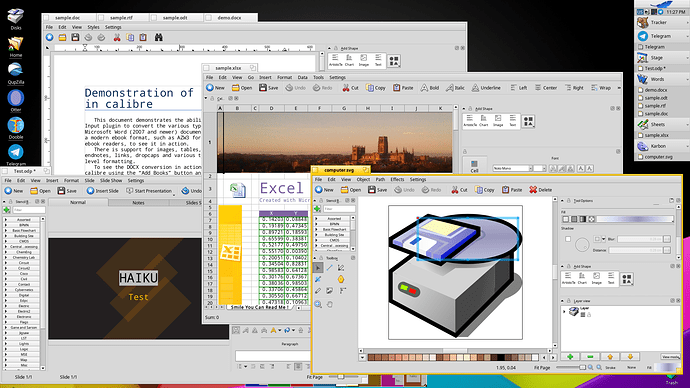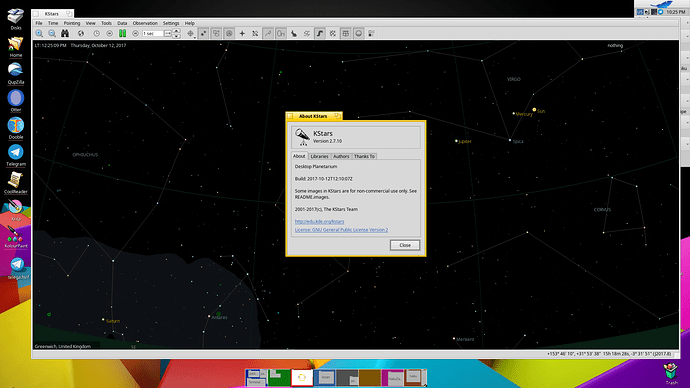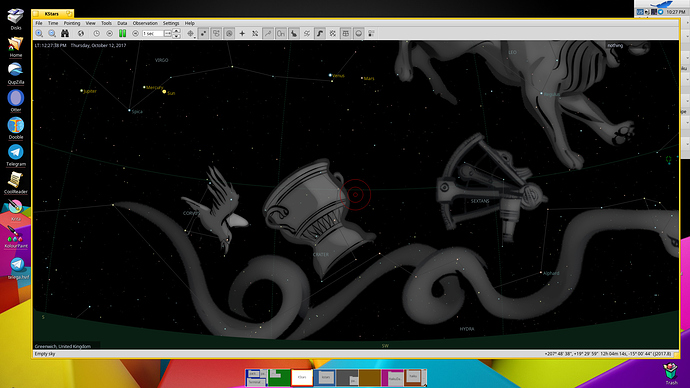Very nice! Good work!
Is there a nice burning app too using the kde framwork?
"K3b is a full-featured, easy to use CD and DVD burner, copier, ripper and more”:
https://www.kde.org/applications/multimedia/k3b/
Could be a pdf reader based on the kde framework fix the problems opening and reading pdfs on Haiku?
What kind of Problem do you got with pdfs?
My haiku does not open any pdf
Yes, there is Okular https://www.kde.org/applications/graphics/okular/
BePDF and DocumentViewer should both open and view PDFs without too much problems. It’s a different things if you have to complete forms in PDFs or other “advanced” operations, however.
I’ve just pushed KDE Frameworks to haikuports:
These are the libs which are needed for all KDE apps to work.
After some more fixes 3dEyes will push his recipes for the apps he’s ported so far.
I agree wholeheartedly (he said, as he was switching on his Haiku box to port another Java app). The problem is not that QT and Java apps don’t look like native ones. That is fixable with skins and icons (PNG not HVIF but still…). The problem is that they don’t interact with Haiku’s own apps and systems.They don’t understand our extended attributes or the way Haiku maintains a single People database. So any attempt at say, mail-merging will mean maintaining a separate database of names and addresses. Then you get people writing conversion utilities … it ends up as a mess.
Still, let’s recall that once upon a time, long long ago, BePDF started out as an XPDF port. We’ll just have to see where this takes us.
KDE is a very specific platform which goes way beyond QT as a UI ToolKit. It especially digs deep into the system (like Akonadi for example for PIM). It will always be an own eco-system inside Haiku (like a VirtualBox). Some applications use less of those dig-ins while others use more but in the end it’s an own eco-system.
I would go as far as saying all this KDE stuff should be an own repository not mixed in with the haiku-ports one. It’s fine if people want to use it (but to be honest, then you are better off using KDE on Linux in the first place) but it doesn’t make sense to mix it into the main ports repository. It’s just too self-sustained.
A port is a port.
Its not really the right way to cut the direct way to install qt, java or kde stuff out of haiku ports repo. The name of it let me thinking that this is the right and only place for it. Sure native apps are better but who should write them? Why people should make a big project like an office suite native when they can port a ready Solution with compatibility to other systems? And by the way you get updates, fixes faster because there is a bigger community behind it.
Please translate, i does not the best english writer:
Ich finde diese Diskussion über nativ/nicht nativ sehr fraglich, denn Haiku als System kann am ende nur überleben wenn es nutzbare Anwendungen für Benutzer gibt. Haikus Gemeinschaft ist einfach zu klein und die vorhandenen Entwickler sind mit dem System beschäftigt. Wer soll denn native Anwendungen schreiben? Wir können sehr froh darüber sein das wir durch qt, kde, java neue nutzbare Anwendungen erhalten die für den Anwender von Nutzen sind und überhaupt ein Grund sein könnten auf Haiku zu wechseln. Ausserdem werden die Programme ja auch betreut von Entwicklern anderer systeme, so dass wir auch davon profitieren da wir ja Fehlerbehebung und Erweiterungen bekommen ohne es selber machen zu müssen.
Wenn Haiku erst einmal einen grossen stamm an Anwendern begeistern kann, dann kommen die nativen Anwendungen von alleine. Das ist aber ein sehr weit in der Zukunft liegender Moment.
Ich bin dankbar für die Arbeit der Leute, die uns QT, KDE und Java beschert haben, denn dadurch ist Haiku nicht mehr nur ein Hobby System der Entwickler sondern bekommt die Chance mehr zu werden.
How can someone be in position to complain about things someone else is giving away for free, on their spare time? Native apps or not, Haiku needs more applications to attract users. I think Diver and 3dEyes are the most important developers right now for the survival of Haiku so instead of complaining show them some respect.
kde doesn’t dig deep into a system, it sits on top of it and even recommends using the underlying system for finegrained control. kde frameworks 5 has an even lighter touch than kde4. it’s pretty modular and for a given app you won’t need all of the kde libraries.
QT selber ist nicht das Problem. Ein ToolKit kürzt die Entwicklungszeit und hilft auch beim Portieren. Das Problem ist KDE. Es ist als WindowManager konzipiert, also eine All-In-One Lösung… für Linux. Dinge wie Akonadi graben sich tief ins System und das ganze User-Interface ist auf ein völlig anderes Konzept gebaut (und stabil ist es übrigens auch nicht, das kann ich als langjähriger KDE Nutzer bestätigen).
Du willst Leute zu Haiku bringen? Das ist gut, aber KDE portieren (welches mit dem nächsten KDE schon wieder völlig anders sein wird) ist eher kontra-produktiv.
kde is not a linux window manager, nor a window manager at all but a suite of libraries and applications. there’s a window manager you can use in the suite, but it hasn’t been integral to kde since the end of kde3 almost a decade ago.
everything about akonadi already exists natively in haiku but if users want something different why stop them? if not akonadi they’d use google or zoho or any other web suite for managing and syncing contacts and events. it’s fine. these are applications, not inherent to an operating system.
i’ve been using kde in linux and osx since 2007 and haven’t in that time had any more issues with stability than cocoa or windows apps.
@3dEyes: Do you know, if the Otter Browser can run on Haiku?


